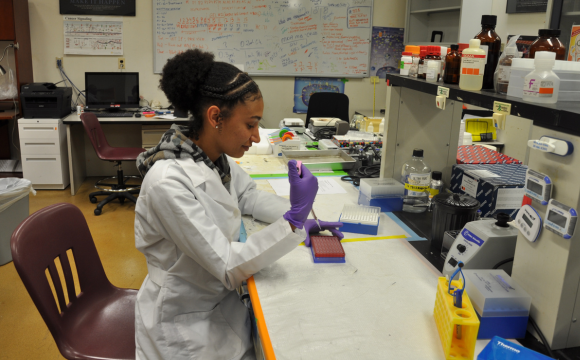Admission Requirements
Looking for more information about the necessary requirements for admission into UDC and our Bachelor of Science degree program? Browse our applicant types (first-time, transfer, etc.) and review the requirements that apply to you!
Admission Requirements
How to Apply
Ready to apply for admission into the Bachelor of Science degree program at UDC? Explore our list of applicant types (first-time, transfer, etc.) and review the requirements that apply to you.
Before you apply, we encourage you to explore our various scholarship and financial aid opportunities, including the:
Apply Now!
Program Outcomes
Upon completion of your degree, you'll be equipped for a wide array of career paths and advanced study opportunities. Many of our past graduates went on to further their education by obtaining advanced degrees in areas like biology, environmental science, biochemistry, and molecular biology. To further leverage your scientific training, you may consider pursuing a career in medicine, dentistry or other health sciences. Within the professional sphere, you could take on a role as a research scientist, contributing to sectors like:
- biotechnology
- pharmaceuticals
- environmental management
- conservation
- bioremediation
- wildlife biology
- bioinformatics
- science communication
Contact Us
For additional questions about the biology program at UDC, please reach out at any time and we will be happy to help however we can!
Samuel Waters
Program Coordinator, Associate Professor of Biology
202-274-5937
samuel.waters@udc.edu
Lisa Sutton
DSAM Secretary
202-274-7401
lsutton@udc.edu







